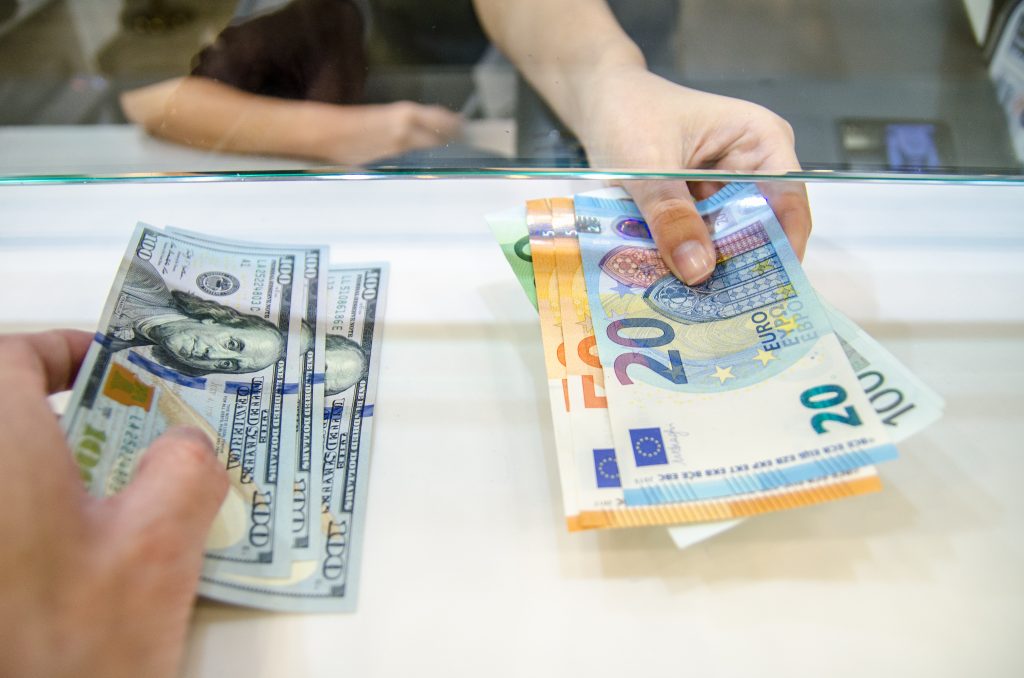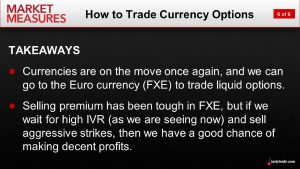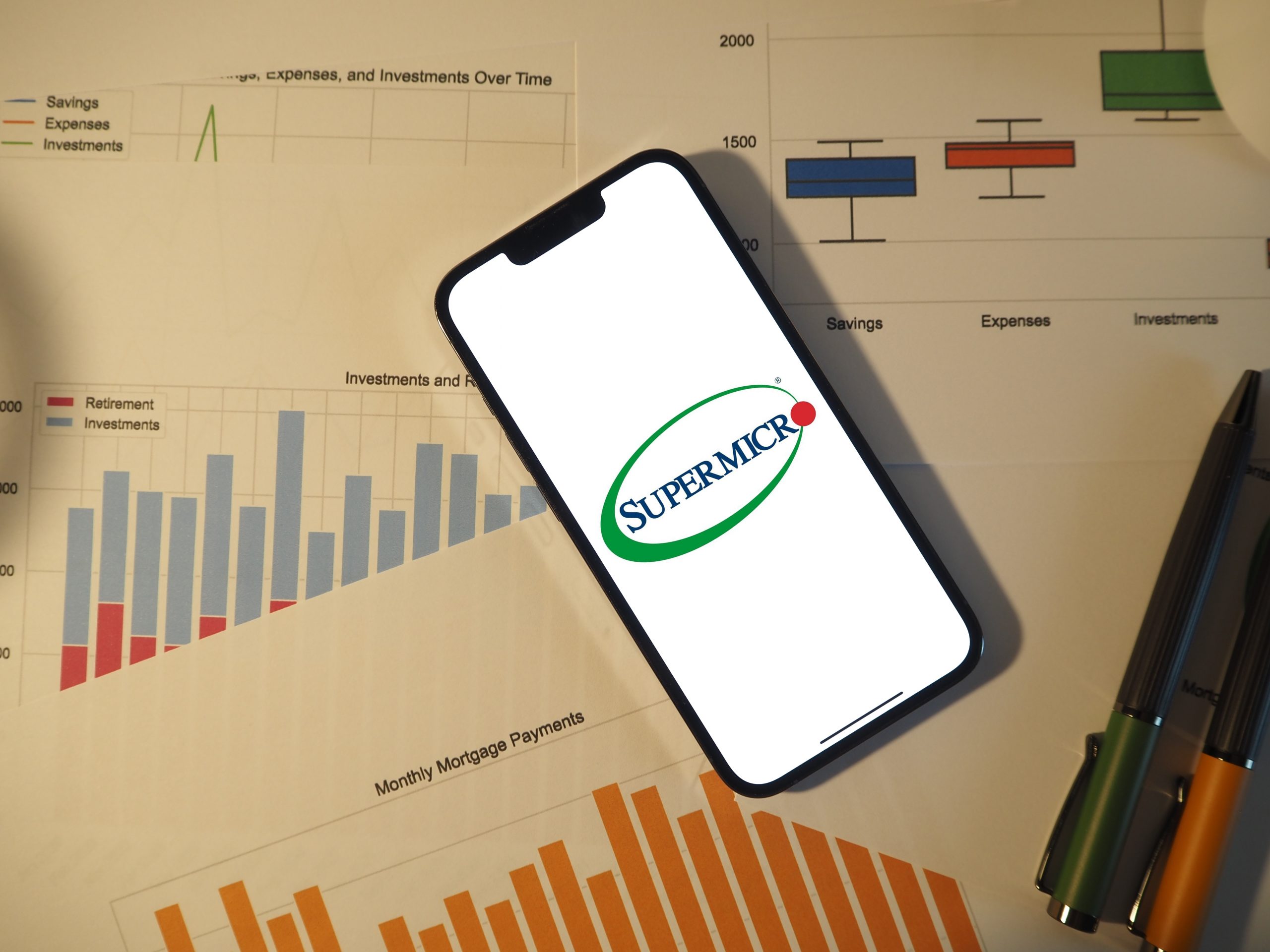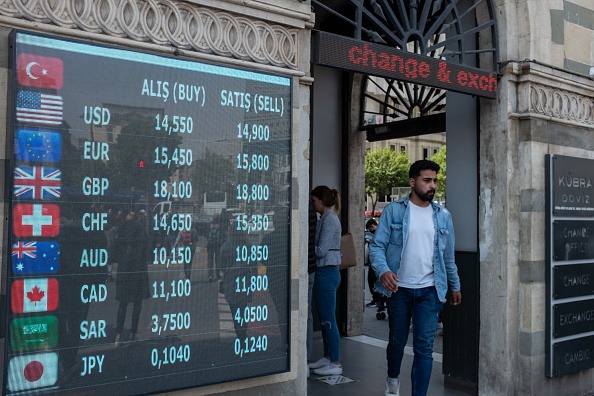How to Trade Forex Options Using Futures and ETFs
Options aren't limited to the world of equities. Market participants can also trade options on products such as futures and foreign currencies, and the mechanics across asset classes are fairly similar.

The global currency market has been especially active in 2022 with the U.S. dollar setting multidecade highs against some of the world’s most liquid notes—including the euro and the yen.
Considering the magnitude of the moves, some market participants might be considering getting active in not only the global currency market, but also the options on currencies market.
Most market participants get their first experience in the options world via the equity markets—trading options on single stocks and exchange-traded funds (ETFs). But options aren’t limited to the world of equities—market participants can also trade options on products such as futures and foreign currencies. Moreover, the mechanics of trading options on these other asset classes are fairly similar.
For example, one will find both calls and puts listed on futures and foreign currencies, just like in the equities market.
And because currencies have been moving a ton in 2022, it’s worth highlighting a few of the most important things to consider when trading foreign currency options.
In general, it’s important to keep in mind that most foreign exchange (i.e. “forex” or “FX”) traders enter this particular market with the intent of speculating or hedging without taking ownership of the physical assets. For this reason, most forex market participants utilize the options, futures, or swaps markets, as opposed to the foreign exchange “spot market.”
As a reminder, the forex spot market is massive and dwarfs every other financial market on earth (in terms of daily volume).
On any given day, governments, companies, and individuals exchange anywhere between $3 trillion to $5 trillion in foreign currency. Traditionally, this market is referred to as the “forex” market, or the “foreign exchange” market, and is conducted completely over-the-counter (OTC) through brokers—there are no centralized exchanges.
Participants in the forex market can range from a huge tech company in the U.S. converting dollars to Chinese yuan in order to pay an overseas supplier, a large multinational selling euros to hedge revenue from that region, or a Swiss tourist in Vietnam exchanging francs for dong so he or she can enjoy a bowl of local Pho.
Importantly, the forex spot market also serves as the underlying for related forex options, as well. That means movement in the forex spot market will directly impact the value of forex options. Like the underlying spot market for foreign currencies, forex options trades are executed over-the-counter (OTC) in what is believed to be the deepest, largest and most liquid derivatives market on earth.
But it’s also important to note that there is a market for foreign currency futures, and those contracts also offer associated options. Forex futures and associated forex futures options may be preferred by some market participants due to their exchange-traded nature.
Some advantages to exchange-traded derivatives (versus OTC contracts) include standardization, liquidity and the minimization of default risk.
In addition to OTC forex options and forex futures options, market participants can also trade options in currency ETFs, like the Invesco CurrencyShares Euro Currency Trust (FXE). This would be similar to trading options on gold using an ETF like the SPDR Gold Shares (GLD)

To learn more about the foreign currency options universe, check out the following tastytrade programming:
- Today’s Assignment: Trading Currency Futures Options
- Small Stakes: Trading Options on Currencies
- Market Measures: How to Trade Currency Options
For daily updates on everything moving the markets, tune into TASTYTRADE LIVE—weekdays from 7 a.m. to 4 p.m. CDT.
Sage Anderson is a pseudonym. He’s an experienced trader of equity derivatives and has managed volatility-based portfolios as a former prop trading firm employee. He’s not an employee of Luckbox, tastytrade or any affiliated companies. Readers can direct questions about this blog or other trading-related subjects, to support@luckboxmagazine.com.




















